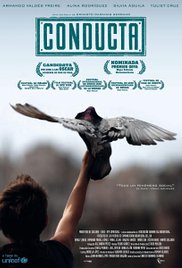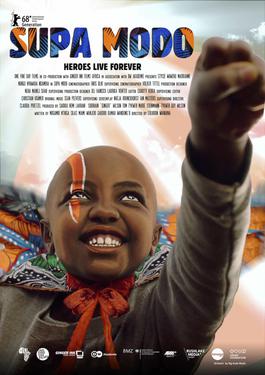
The Toronto International Film Festival is one of the most prestigious and largest publicly attended film festivals in the world, founded in 1976 and taking place each September. It is also a permanent destination for film culture operating out of the TIFF Lightbox cultural centre, located in Downtown Toronto.

The Transilvania International Film Festival is the first international feature film festival in Romania, which is held annually in the historic capital of Transylvania, Cluj-Napoca. Founded in 2002 by the Romanian Film Promotion, TIFF has grown rapidly to become the most important film-related event in Romania. It is a member of the Alliance of Central and Eastern European Film Festivals (CentEast) and it is supported by the Creative Europe – MEDIA Programme. In February 2011, TIFF has been accredited by the FIAPF as a "competitive festival specialised on first and second feature films". Indiewire listed it as one of the world's top 50 leading film festivals.
Khaled is a Canadian drama film, directed by Asghar Massombagi and released in 2001. It is the story of a ten-year-old boy who tries to conceal the death of his mother.
Yossef (Joseph) Cedar is an Israeli film director and screenwriter.

Nairobi Half Life is a 2012 Kenyan drama film directed by David "Tosh" Gitonga. The film was selected as the Kenyan entry for the Best Foreign Language Oscar at the 85th Academy Awards, but did not make the final shortlist. It is the first time Kenya has submitted a film in this category.
Heather Young is a Canadian filmmaker based in Dartmouth, Nova Scotia.

Behavior is a 2014 Cuban drama film directed by Ernesto Daranas. In English writing, the film is usually referred to by the title Behavior. The film premiered in February 2014, and played at the Málaga Film Festival before having its US premieres simultaneously at the Chicago Latino Film Festival and Havana Film Festival New York in April 2014. Behavior was then screened in the Contemporary World Cinema section at the 2014 Toronto International Film Festival. It was selected as the Cuban entry for the Best Foreign Language Film at the 87th Academy Awards, but was not nominated.

Felix and Meira is a 2014 Canadian drama film directed by Maxime Giroux, and starring Martin Dubreuil, Hadas Yaron, and Luzer Twersky. It is about an improbable affair between two Montreal residents - one a married woman from a devoutly Jewish family and community, and the other a single French Canadian man with his own family issues.

Stories of Our Lives is a Kenyan film, released in 2014. Created by the members of The Nest Collective, a Nairobi-based arts collective, the film is an anthology of five short films dramatizing true stories of LGBT life in Kenya.

11 Minutes is a 2015 Polish-Irish thriller film written and directed by Jerzy Skolimowski. It stars Richard Dormer, Paulina Chapko, Wojciech Mecwaldowski, Andrzej Chyra, Dawid Ogrodnik, Agata Buzek, Piotr Glowacki, Mateusz Kościukiewicz, Ifi Ude, Jan Nowicki, Anna Maria Buczek, and Lukasz Sikora. Set in Warsaw, it tells the story of multiple people's lives over the course of eleven minutes in a single day. The film had its world premiere in the Competition section at the 72nd Venice International Film Festival on 9 September 2015. It was selected as the Polish entry for the Best Foreign Language Oscar at the 88th Academy Awards, but it was not nominated.

Home Care is a 2015 Czech-Slovak drama film directed by Slávek Horák. The film was selected as the Czech entry for the Best Foreign Language Film at the 88th Academy Awards but it was not nominated.

Buffer Festival is an international digital video festival, held annually in Toronto, Ontario. The festival, founded in 2013 by Corey Vidal, Corrado Coia, and Samantha Fall of the ApprenticeA YouTube channel, showcases the talent of online video creators who have debuted their work on YouTube. Buffer Festival has been called "The Digital version of the Toronto International Film Festival" and "The World's first festival dedicated to YouTube content".

Eva Nová is a 2015 Slovak-Czech drama film written, directed and co-produced by Marko Škop. It was screened in the Discovery section of the 2015 Toronto International Film Festival where it won the FIPRESCI Prize. It was selected as the Slovak entry for the Best Foreign Language Film at the 89th Academy Awards but it was not nominated.
Barakah Meets Barakah is a 2016 Saudi Arabian drama-comedy film directed and written by Mahmoud Sabbagh, a remarkably candid Saudi Arabian love story which uses humor as a counterweight to the difficulties the couple face. Principal photography of Barakah Meets Barakah began on 25 September 2015 and ended on 22 October, and was shot entirely in Jeddah, Saudi Arabia. The film was selected as the Saudi Arabian entry for the Best Foreign Language Film at the 89th Academy Awards.

The 41st annual Toronto International Film Festival was held from 8 to 18 September 2016. The first announcement of films to be screened at the festival took place on 26 July. Almost 400 films were shown.

Supa Modo is a 2018 internationally co-produced drama film directed by Likarion Wainaina. It first premiered at 68th Berlin International Film Festival. It was selected as the Kenyan entry for the Best Foreign Language Film at the 91st Academy Awards, but it was not nominated.

Antigone is a 2019 Canadian drama film directed by Sophie Deraspe. An adaptation of the ancient Greek play Antigone by Sophocles, the film transposes the story to a modern-day refugee family in Montreal. The cast includes Nahéma Ricci as Antigone, with Rawad El-Zein, Hakim Brahimi, Rachida Oussaada, and Nour Belkhiria. It was filmed in Greater Montreal in 2018.
The Toronto International Film Festival International Critics' Prizes, currently known as the FIPRESCI Prizes, are film awards presented by the International Federation of Film Critics (FIPRESCI) to films screening at the Toronto International Film Festival.
Mbithi Masya is a film maker, artist and writer born in Nairobi, Kenya.













